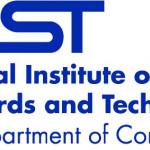- 업종: Technology
- Number of terms: 2742
- Number of blossaries: 0
- Company Profile:
The National Institute of Standards and Technology (NIST) — known between 1901 and 1988 as the National Bureau of Standards (NBS) — is a measurement standards laboratory and a non-regulatory agency of the United States Department of Commerce. The institute's official mission is to promote U.S. ...
(1) In a binary search tree, pushing a node N down and to the left to balance the tree. N's right child replaces N, and the right child's left child becomes N's right child. (2) In an array, moving all items to the next lower location. The first item is moved to the last location, which is now vacant. (3) In a list, removing the head and inserting it at the tail.
Industry:Computer science
(1) In a binary search tree, pushing a node N down and to the left to balance the tree. N's right child replaces N, and the right child's left child becomes N's right child. (2) In an array, moving all items to the next lower location. The first item is moved to the last location, which is now vacant. (3) In a list, removing the head and inserting it at the tail.
Industry:Computer science
(1) In a binary search tree, pushing a node N down and to the right to balance the tree. N's left child replaces N, and the left child's right child becomes N's left child. (2) In an array, moving all items to the next higher location. The last item is moved to the first location, which is now vacant. (3) In a list, removing the tail and inserting it at the head.
Industry:Computer science
(1) In a binary search tree, pushing a node N down and to the right to balance the tree. N's left child replaces N, and the left child's right child becomes N's left child. (2) In an array, moving all items to the next higher location. The last item is moved to the first location, which is now vacant. (3) In a list, removing the tail and inserting it at the head.
Industry:Computer science
(1) In computer science, entities having just two values: 1 or 0, true or false, on or off, etc. along with the operations and, or, and not. (2) In mathematics, entities from an algebra equivalent to intersection, union, and complement over subsets of a given set.
Industry:Computer science
(1) Of a boolean, 0 if 1, or 1 if 0. See not. (2) Of a set A, a set having all the members which are in the universe, but not in A.
Industry:Computer science
(1) Of a vertex, the number of edges connected to it. (2) Of a graph, the maximum degree of any vertex. (3) Of a tree node, the number of child nodes it has.
Industry:Computer science
(1) Proportional to. (2) Asymptotically equal to. A theoretical measure of the execution of an algorithm, usually the time or memory needed, given the problem size n, which is usually the number of items. Informally, saying some equation f(n) ~ g(n) means it grows at the same rate as g(n). More formally, it means lim<sub>x → ∞</sub>f(x)/g(x) = 1.
Industry:Computer science
(1) The amount of time needed to execute an algorithm. (2) The time when a compiled program is executing, versus compile time.
Industry:Computer science
(1) The greatest integer which is a divisor of given positive integers. For instance, GCD(30, 42) = 6. (2) An algorithm to find the same.
Industry:Computer science
